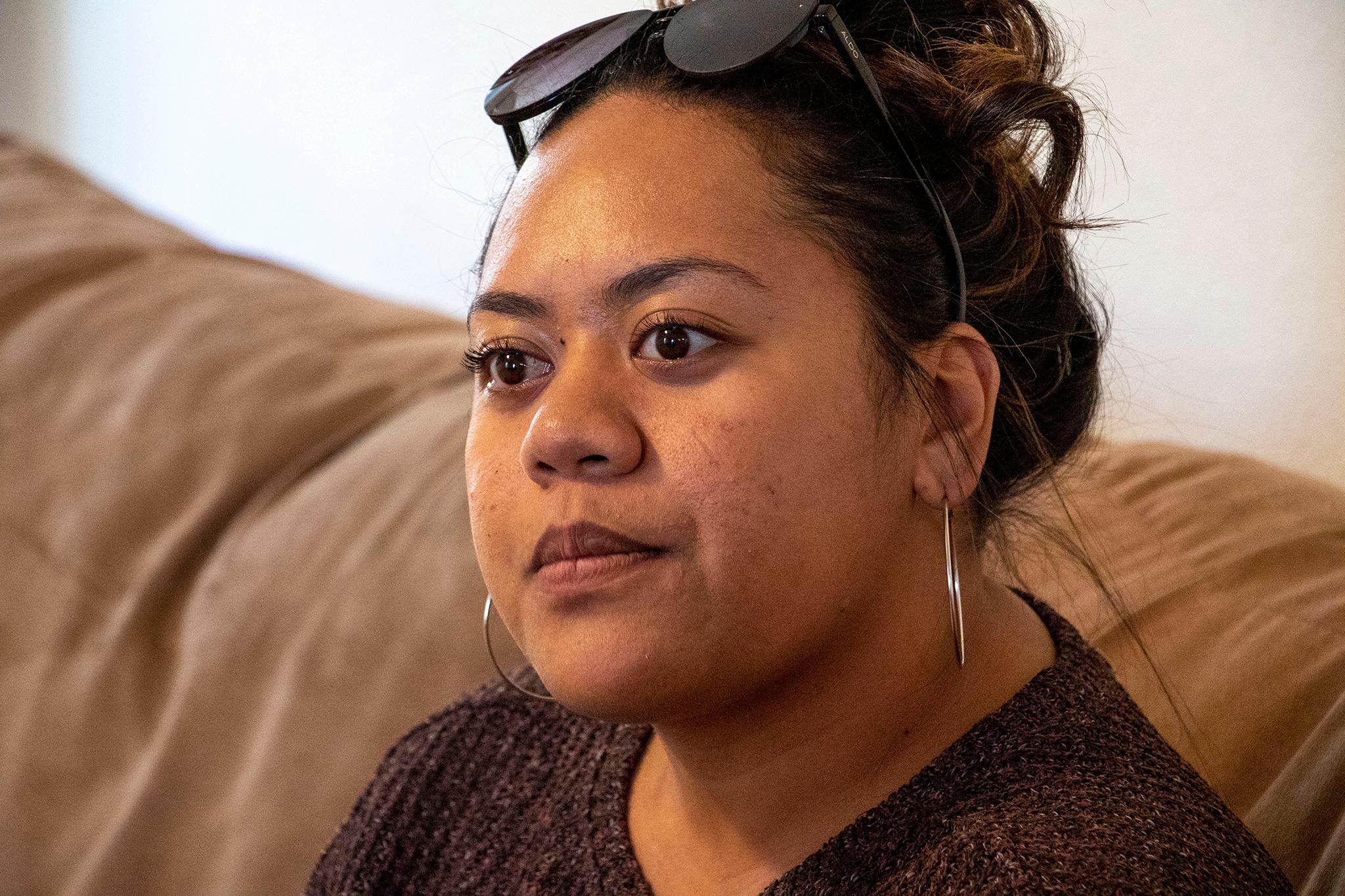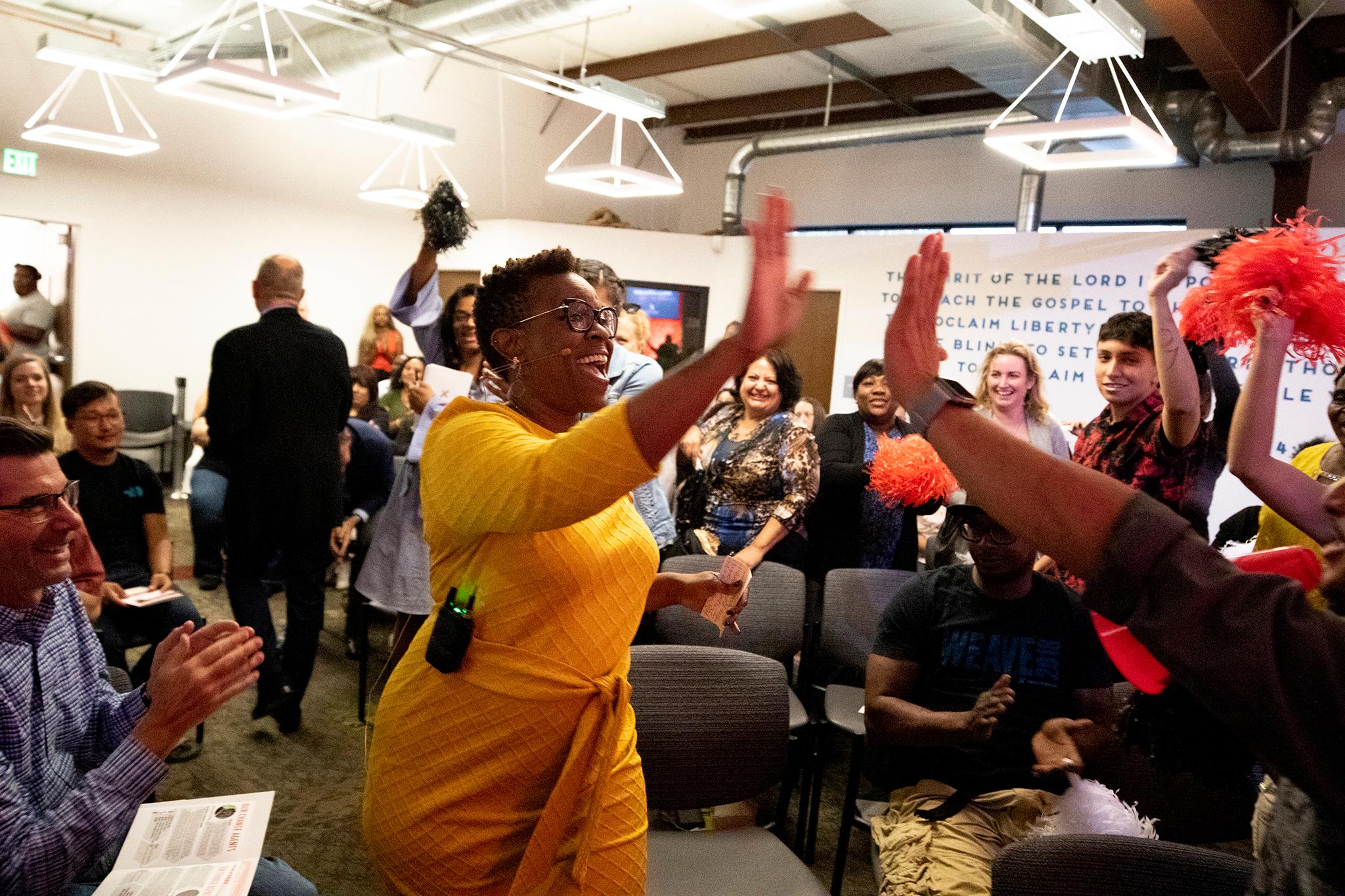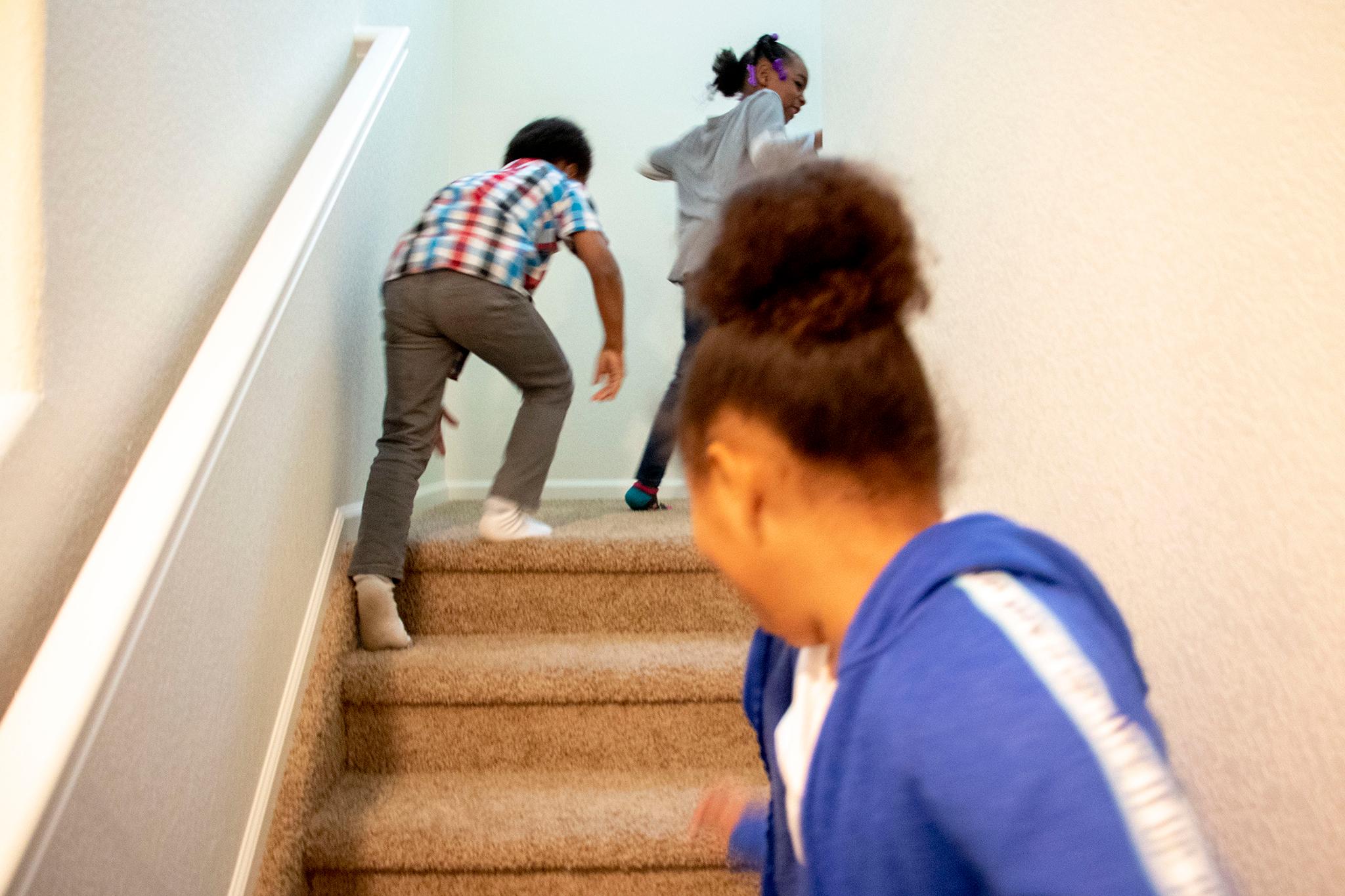It's impressive enough, given metro Denver's heated market, that a 25-year-old was able to buy a home.
Mele Lavaka is also the first graduate of CrossPurpose's personal development training programs to close on a home loan. Lavaka's milestone helped inspire an effort by CrossPurpose to ensure more of its alum buy homes. Owning a home is seen as crucial to building intergenerational wealth for people such as Lavaka who have felony records, single parents and others whom CrossPurpose is committed to helping to escape poverty.
A few years ago, Lavaka said, she never thought she'd be a homeowner.
"Then I just said to myself, 'Why would I tell myself that?'" she said. "Instead of focusing on the negatives, let's look at the positives."
Lavaka's journey from halfway house to her own house is unusual. But at its core are habits of finding community and setting and pursuing goals that can be instructive for anyone.

Rochelle Ngatia, a career coach at CrossPurpose, said Lavaka "had the vision to see where she wanted to get, but she had the patience to do the right thing every day."
"She has that mentality of, "it doesn't have to be perfect, I'm going to walk the path,'" Ngatia said of Lavaka, whom she mentored. "It's ... shooting for the long term, but being content to take the step today."
Lavaka said that hasn't always described her.
She was born and raised in Denver and Aurora, a child of immigrants from Tonga. She saw providing for her family as fulfilling the American dream. As a teenager, she said, she quickly became impatient with her first job, earning $9 an hour at Walmart.
She thought, she remembers, "There has to be a different way to go about making money."
"I started selling weed in high school," she said. "In college, I was selling Molly and pills. It got worse. I was selling heroin and crack."
She was always ready with cash to help her parents, brothers and sisters with rent or utilities. She would shower her family with birthday and Christmas presents.
"I thought I was doing what's best. I didn't realize that this is not good and not for the long run," she said.
"Now when I look back, families who I was selling dope to, that is not doing good to your community," she said. "The money they're spending with you could be spent on their kids. The money they're spending with you could be spent on their bills. When I think back on everything, I was selfish."
"I was taking away from other families."

She also was lying to her own. She would tell her parents she had a rich boyfriend. She tried to dole out her help in small amounts, stashing the rest of her cash in flower pots and elsewhere around the house.
Arrests were starting to pile up. Some were for driving under the influence, others drug related. Her legal troubles kept her from finishing college after enrolling at the Fashion Institute of Design & Merchandising in Los Angeles, even though Lavaka would usually post bond and then not show up in court.
"I got to the point where, even though I never said this out loud, I knew that in my heart, something has got to give," she said.
Then, standing before a judge after her 12th arrest, she heard the words, "No bond."
"I was like, 'What do you mean? How much money do you want?'" she said.
In jail she decided, "I'm not going to let the state discipline me. I'm going to discipline myself."
She asked to be confined to her cell for all but an hour of the day. Alone, she thought back on lessons her pastor father had taught.
"He always, constantly told me how prayer does wonders, God is never going to leave you."
"I started building my relationship with God. And being thankful for everything. My food. My toothbrush. My T-shirt."
Eventually, she transferred to the general population at Denver County Jail. She started a jail Bible study group.
After eight months in jail, in 2017 she was sent to the Williams Street halfway house in Denver's City Park West. The halfway house closed down in October. It had been owned and operated by GEO Group. GEO and CoreCivic were denied new contracts in August by Denver City Council after members raised concerns about the companies' ownership of private immigration prisons.
While at Williams Street, Lavaka was introduced to CrossPurpose.
CrossPurpose started in 2008 with programs such as Cub Scouts for fatherless boys. It later reached out to people leaving prison and came to see itself as fighting economic as well as spiritual poverty. The faith-based nonprofit offers six months of free, intensive training in legal services, nursing, carpentry and other fields, as well as a chance for participants to network and hone resume-writing and interviewing skills.
Ngatia, the career counselor, knows of single mothers who rise at 4 a.m. to get their children to daycare and then get themselves to CrossPurpose at 3050 Richard Allen Court in Skyland. As a mentor to participants, she said she gets to "sit alongside, help them overcome, help them think through the challenges that they're facing."


Ngatia saw that Lavaka was smart, worked well with people, was detail-oriented -- skills she'd put to good use selling drugs. Lavaka had a good relationship with her parents and siblings, Ngatia noted. Others coming out of jail don't always have that, leaving them to rely on friends who might encourage them to fall back on old, troublesome habits.
Lavaka didn't initially see the purpose of CrossPurpose. She already had a resume, she said, and a sheaf of cover letters. She'd found a job on the Nordstrom's sales floor before she started at CrossPurpose.
"I kept going (to CrossPurpose) because I was in a halfway house and this was my ticket out the door every day," she said.
Then she heard Jason Janz, CrossPurpose's chief executive officer and one of its founders, weave Bible verses into discussions. He pushed her to think about why she had chosen to sell drugs and about the consequences of her actions.
CrossPurpose, she said, gave her "hope. Motivation. Support. A sense of community. A sense of belonging."
Though she finished her course more than two years ago, she still chats every now and then with Ngatia.
"She's kind of checking in that someone cares," Ngatia said.
CrossPurpose doesn't take credit for Lavaka becoming a home buyer. In August, the nonprofit for the first time organized a home-buying course where graduates of its career training programs could get advice from real estate agents.
"Mele, seeing where she's at, I think it was inspiring for a lot of people and got us thinking it was something we could work toward a little more intentionally," Ngatia said.
Rising rents are already pushing many CrossPurpose clients further and further away, leaving some traveling hours to and from class, Ngatia said. Owning would ease some uncertainty.
"It's huge, just to have that stability," Ngatia said. And "there's an emotional pull to having a place that's home."
Lavaka said she had been thinking about buying a home for her mother. This past Mother's Day, she saw an Instagram ad encouraging people to make a gift of a house for their mothers. The pitch came from LGI, a Texas-based company that has positioned itself as a builder of homes across the country that people on moderate incomes can afford. Lavaka clicked on a link and filled out a form.
"I got a call within 15 minutes as I'm getting ready for church that Sunday," she said.
She was told about an LGI development north of Denver in Lochbuie.
"I'd never heard of Lochbuie," she said.
She had looked at houses in Denver that were beyond her budget. Leaving Denver can mean finding affordability. Lochbuie is a 35-minute drive to downtown Denver, where Lavaka works for a company that helps businesses run credit checks and apply for loans. She also still works part-time at Nordstrom, taking evening shifts after leaving her downtown office.
"My commute back at 10:30 is smooth sailing," she said.


Lavaka researched mortgages and learned about the Colorado Housing and Finance Authority, or CHFA, which helps develop affordable housing across the state. CHFA also supports aspiring homeowners by connecting them to approved lenders. To get a loan through CHFA, borrowers must meet income limits, have good credit, be able to contribute at least $1,000 toward the purchase, and take a class covering what homeowners can expect. CHFA also offers down payment assistance.
Landlords often refuse to rent to felons. Lavaka said fellow CrossPurpose graduates were surprised to hear that her criminal past mattered neither to the home builder nor her lender.
"I've shared my story with them," she said. "They were like, 'Why would we hold it against you if you've come so far?"
The importance of good credit had been drummed into her by caseworkers at the halfway house, Lavaka said. And once she got past the resume building and cover letter writing, she had learned about budgeting and setting savings goals at CrossPurpose.
"It's a whole lifestyle. You've got to shift it all. I went from partying every weekend to not knowing the last time I partied," she said, saying now she savors gardening with her niece and planning meals.
"Some people tell me, 'But you are still young.' Yeah, I'm young. But I've lived quite a life."
She put down $3,500 on a $365,000 three-bedroom, two-and-a-half-bath on a corner lot. Her monthly mortgage payment is $2,250. She had been paying $2,100 in rent.
"I weighed it out and I was like, 'Why haven't I moved yesterday?'" she said.
Lavaka's Lochbuie subdivision is surrounded by farm fields. Many of the neighboring homes are still awaiting buyers. Her front door mat still has a price tag on it. She's saving to hire an uncle and two cousins who have a landscaping business to finish her yard, now a dirt lot.
Owning a home is a chance to build equity, Lavaka said. And it's "your canvas," she said.
"You can create it how you'd like, without having to ask for permission."

Her brother, his wife and daughter were planning to move in with her once the lease on their current apartment ends in December, and her parents and three younger siblings once their lease ends in January.
The day she closed on the house in October, Lavaka brought a blanket and a pillow over and slept on the floor.
"I was so excited. I just wanted to be in what I could call mine."
She's slowly been buying furniture, keeping to her budget.














